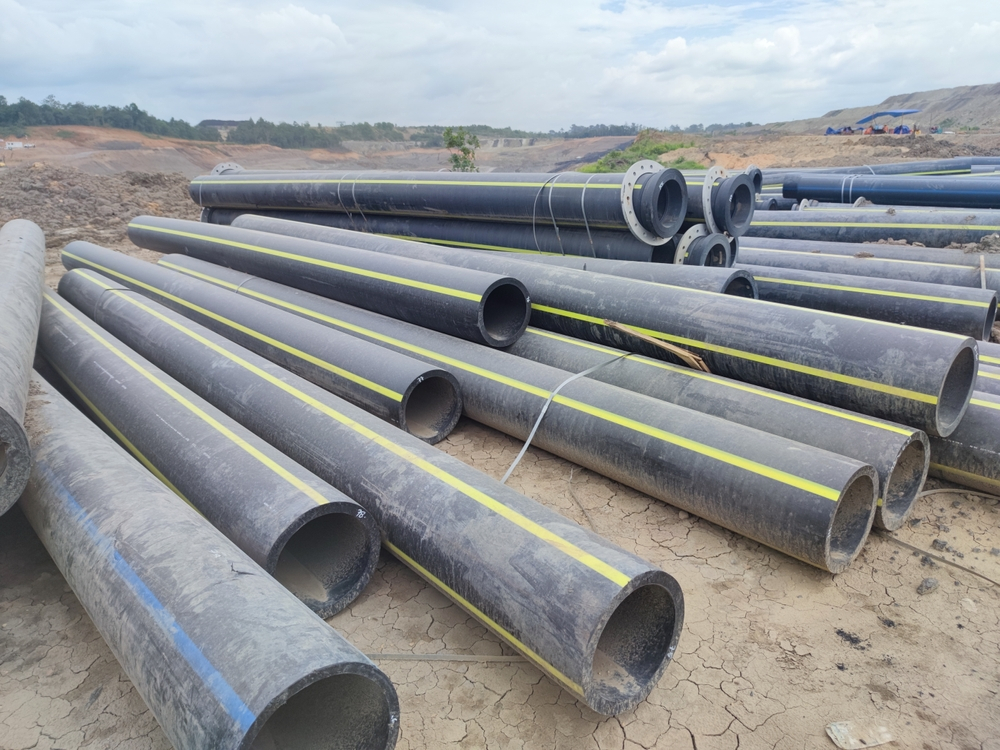How to Install hdpe pipe fittings Midland TX for Reduced Maintenance
Wiki Article
Comprehending the Key Benefits of HDPE Pipeline for Water and Wastewater Monitoring
Making use of HDPE pipeline in water and wastewater monitoring offers numerous advantages that warrant factor to consider. Its remarkable resilience and long life-span make it a favored selection for several jobs. In addition, the material's resistance to rust and chemical damage enhances its integrity in different settings. Nevertheless, the benefits extend beyond just longevity and resistance. Exploring its cost-effectiveness and environmental impact exposes much more engaging reasons for its extensive fostering in modern-day infrastructureOutstanding Toughness and Durability

HDPE pipe stands apart for its remarkable sturdiness and long life, making it a recommended selection in water monitoring systems. Built from high-density polyethylene, these pipes can endure substantial pressure and tension, guaranteeing reputable performance in time. Their robust nature enables them to sustain severe environmental problems, including temperature level fluctuations and dirt activities, which can trigger various other products to fail.
The lifespan of HDPE pipes commonly exceeds half a century, supplying an economical solution for towns and industries alike. In addition, the product's lightweight buildings simplify installation, reducing labor prices and timeframes. This toughness lessens the requirement for frequent fixings or replacements, better improving its economic allure.
In water management applications, the integrity of HDPE pipelines means less disturbances and boosted service continuity, making them essential to lasting infrastructure growth. The combination of durability and long life strengthens HDPE's role as a keystone in efficient water monitoring options.

Resistance to Deterioration and Chemical Damages
While numerous materials catch rust and chemical damage in time, HDPE pipelines exhibit impressive resistance, making them optimal for numerous water monitoring applications. This strength comes from the molecular framework of high-density polyethylene, which is inherently non-reactive and does not wear away like steels or degrade from direct exposure to severe chemicals. Consequently, HDPE is highly reliable in settings with hostile substances, such as wastewater systems that may include acids, bases, and organic solvents.
In addition, HDPE pipelines can withstand ecological variables such as soil level of acidity and saline problems, additionally enhancing their viability for varied applications (American Plastics HDPE Pipe Manufacturing). Their capability to keep architectural stability over time minimizes the threat of leakages and failings, which is critical in making sure the safety and security and reliability of water distribution and wastewater management systems. The resistance to corrosion and chemical damages significantly contributes to the general performance and durability of HDPE piping services.
Cost-Effectiveness and Economic Advantages
When taking into consideration the financial ramifications of water monitoring systems, the cost-effectiveness of HDPE pipelines becomes noticeable. These pipes supply lower setup and maintenance costs compared to typical materials like metal or concrete. Their light-weight nature streamlines transport and installation, causing minimized labor costs. Furthermore, HDPE pipes show a lengthy life-span, typically going beyond half a century, which equates to less replacements and long-term cost savings.Furthermore, the resistance of HDPE to corrosion and chemical damages reduces the need for pricey repair work and replacements. The pipes additionally sustain efficient water flow, reducing power costs connected with pumping systems. By alleviating leakages and water loss, HDPE pipelines add to considerable economic advantages for municipalities and industries alike. In general, the preliminary financial investment in HDPE piping can yield significant monetary returns over the lifespan of the water administration system, making it a prudent selection for lasting infrastructure advancement.
Ecological Sustainability and Minimized Impact

Versatility and Flexibility in Installation
As a result of their one-of-a-kind homes, HDPE pipelines use exceptional flexibility and versatility in installment, making them appropriate for a wide variety of applications. Their lightweight nature permits for less complicated handling and transport, lowering labor costs and setup time. HDPE pipes can be curved and formed to fit different surfaces and project demands, which is especially useful in challenging atmospheres.Furthermore, their resistance to deterioration and chemical damages permits for installation in diverse setups without the requirement for specialized safety finishes. The ability to fuse joints produces a continuous, leak-free system, boosting the total stability and integrity of the installation. HDPE's adaptability also suits ground activity, minimizing the danger of damages in areas susceptible to moving soil. On the whole, these attributes make HDPE pipelines not only versatile but likewise a recommended selection for water and wastewater monitoring systems.
Often Asked Questions
How Does HDPE Pipeline Contrast to PVC in Water Monitoring Applications?
HDPE pipeline uses remarkable adaptability, resistance to corrosion, and durability compared to PVC. Its lighter weight assists in much easier setup, while its long life article source expectancy minimizes substitute costs, making HDPE a favored choice in water administration applications.What Is the Life Expectancy of HDPE Piping Under Normal Problems?
Under common problems, HDPE pipelines can have a life expectancy varying from 50 to 100 years. Their toughness and resistance to rust contribute to their long-term efficiency in various applications, making them a trusted choice over at this website for framework.Are HDPE Pipes Recyclable After Their Life Span?
Yes, HDPE pipelines are recyclable after their life span. Pipe Supplier American Plastics Midland. They can be processed and repurposed right into brand-new items, substantially lowering environmental influence and advertising sustainability within the market, making them an eco-friendly selection for piping solutionsWhat Is the Setup Refine for HDPE Water Lines?
The installment procedure for HDPE pipes involves website prep work, trenching, pipeline fusion or mechanical signing up with, backfilling, and pressure testing. Correct strategies guarantee a sturdy and effective system for carrying water and wastewater properly.Can HDPE Pipeline Be Used for Both Drinkable and Non-Potable Water Solutions?
Yes, HDPE pipelines can be made use of for both potable and non-potable water systems. Their adaptability, durability, and resistance to corrosion make them suitable for different applications, making sure risk-free and effective transport of water in different contexts.Report this wiki page